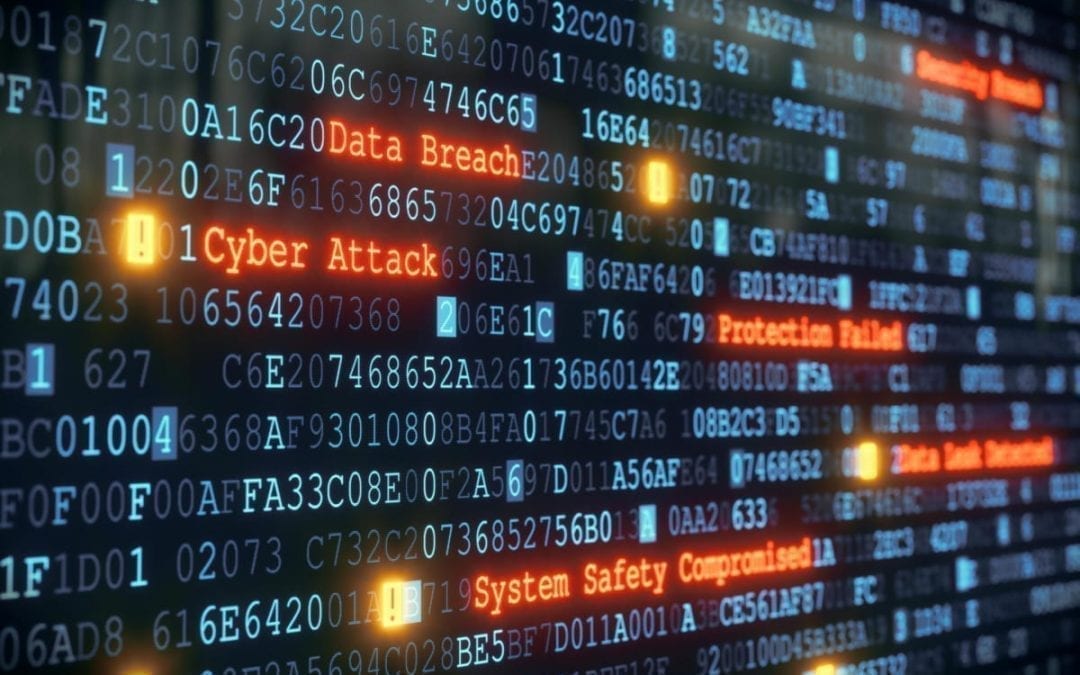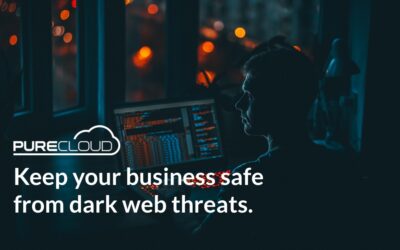As technology advances and our reliance on it increases, cyber security threats and the pressure on businesses to protect against them grows. Cyber security incidents can be devastating, not only financially, but they do nothing for your reputation and they take a lot of time to recover from.
In the past year alone, it is estimated that 54% of companies have experienced one or more cyber attacks, with 43% of these targeting small businesses. What’s even more worrying is that 77 percent of companies indicated they do not have a cyber security incident response plan in place, so should the worst happen, they are totally unprepared to cope.
With that in mind, it’s so important to make sure you and your staff are clued up on the cyber threat landscape and have sufficient measures in place to help you manage any attacks. So how much do you really know about cyber security?
Answer these 10 questions and find out how you can better protect your business!
Q1. What is Phishing?
A) A way of obtaining sensitive data from an individual by pretending to be a reputable source
B) Sending a nasty email attachment to effect someone’s computer
C) An internet version of fishing that helps you to make friends
A
B
c
80% of cyber attacks in the past year are the result of phishing. It’s a big problem. Cyber criminals usually target individuals via email or other online methods pretending to be someone you know or trust, like an employee or the bank. They then manipulate you into handing over highly valuable, sensitive information to exploit for their own gain.
Q2. How can you tell a website is secure?
A) It is a website I use regularly and I recognise the landing page
B) The company name and logo is correct
C) The web-page begins with https:// and a padlock is visible
A
B
C
If a website URL begins with “https://” instead of “https://” it means the site is secured and encrypted using an SSL Certificate (the s stands for secure). SSL Certificates secure all of your data as it is passed from your browser to the website’s server. To get an SSL Certificate, the company must go through a validation process. The padlock must also be visible as this tells you the security certificate is valid.
Q3. What does a secure password look like?
A) Personal using memorable details like my name or favourite team
B) At least 12 characters long using uppercase and lowercase letters, special characters and numbers
C) The same as all the other passwords I’ve used for the last 5 years
A
B
c
Nobody can agree on a minimum password length, but if creating one that’s a minimum of 12 to 14 characters in length should do the trick. Try to use different types of characters, symbols and numbers to make the password harder to crack and stay away from well known phrases, words or personal details.
Q4. What helps protect your computer from malware & viruses?
A) Making sure you have credible anti-virus software and firewalls installed and fully up to date
B) Only downloading things from trusted sources
C) Making sure you complete system updates when prompted
A
B
c
We’ve been sneaky and thrown in a trick question! The answer is actually all A, B & C. All of these steps should be taken together and are considered as basic measures to protect your hardware from clever hackers, nasty malware, unwanted data loss and pesky viruses.
Q5. how can you protect yourself while using public wifi?
A) Make sure you’re using the “private” setting on your device
B) Make sure your Bluetooth is turned off and your device can’t be discovered
C) Use a Virtual Private Network or VPN
A
B
c
Secure passwords and encryption software can’t prevent attacks like man-in-the middle or email interception attacks via public WiFi. Using a VPN is the only way to keep your connection private. Think of it as a secure, private ‘tunnel’ built over a public network. It guarantees that there’s end-to-end communication security.
Q6. ALTOGETHER, how much do data breaches cost uk companies on average per year?
A) 10 Thousand Pounds
B) 6.4 Million Pounds
C) 850 Thousand Pounds
A
B
c
According to a government statistic, the average cost of a cyber breach per organisation, per time, is £10,000 for smaller businesses. But for larger organisations this figure can rise to over £22,000. Plus, companies get fined for not reporting breaches to the ICO. At those kind of eye-watering figures, it doesn’t take long to hit the 6.4 million mark …
Q7. what is a botnet?
A) A group of hijacked computers remotely controlled to perform malicious acts
B) A new artificial intelligence threat that automatically connects you to nasty websites
C) A robot that is being used to hack you while criminals are asleep
A
B
c
The word Botnet is formed from the words ‘robot’ and ‘network’. These are controlled by cyber criminals who often use Trojan viruses to breach the security of several users’ computers. Once they’ve infected your computer, your machine becomes part of a network of ‘bots’ that the criminal can remotely manage to cause online mayhem for businesses and users alike.
Q8. Which is a true example of two-factor authentication?
A) Selecting pictures from a grid like traffic lights or shop-fronts
B) Your normal password plus a one-time pass-code generated at the time of accessing secure data
C) Answering secure questions like your favourite colour or pet’s name
A
B
c
This is the only accepted example of two-step authentication listed. True two-step authentication requires the user to enter a one-time code each time they log in to their account, in addition to their regular username and password. While the other answers may require users to perform two separate operations to gain access to a site, they are not examples of two-step authentication.
Q9. What percentage of cyber attacks are due to human error?
A) 45%
B) 82%
C) 95%
A
B
c
Whilst having the right technology in place is vital, so too is regular staff training. That’s because cyber security breaches are often the result of human error due to a lack of cyber security knowledge. In fact, according to a recent study by IBM, human error is the main cause of 95% of cyber security breaches. We’re only human after all …
Q10. what’s the best way to protect yourself from cyber attacks?
A) Make sure you’re using best of breed technology
B) Ensure you are regualrly training your staff
C) Talk to experts who can help advise you of upcoming cyber security threats
A
B
c
We’ve been sneaky again! It’s another trick question because it’s actually all three! Having intelligent technology in place can help to stop the majority of cyber attacks that target your business whilst cyber security experts can help you stay one step ahead of the criminals, advising what products are best for your needs. And if you train your staff well and often so they are always vigilant, they can stop the attacks that may slip through the cracks.
how did you do?
0-4? you need help!
Uh-oh! You’ve not scored very highly. You’re in need of a little cyber security support. Never fear! Pure Cloud Solutions are here to help get you up to speed and protected in no time – contact us!
5 – 8? Room for Improvement!
Okay, you didn’t do too badly, but there’s still some things you could do to keep the cyber criminals at bay. Maybe your technology is outdated or you need training, we can help!
9-10? Gold Star!
Wow! You’re a bit of an expert – That’s great! But what about your team or other employees in your organisation? Share it with them and see how they get on!
we’re cyber security experts!
Pure Cloud Solutions have dedicated cyber security experts with a wealth of knowledge on the cyber threat landscape, common and upcoming attacks as well as the technology you could implement to keep the criminals at bay.
We can review your current cyber security measures for FREE at your convenience to see if you could be doing more to protect your business. Plus we’ll give you a 10% discount to use against a cyber security solution. Simply fill in your details and we’ll be in touch!





Recent Comments